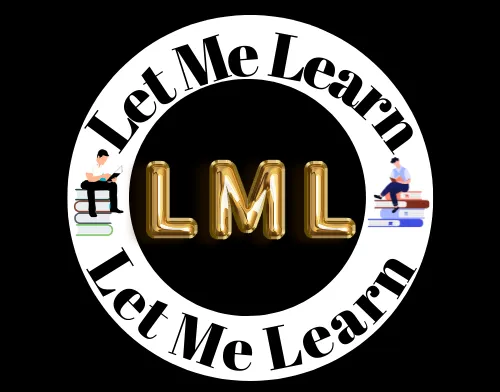Unlock a treasure trove of over 150 best report card comments samples for students. Dive into this comprehensive feedback guide to enhance student growth and academic success
150+ Best Report Card Comments Samples for Students
Are you a teacher or educator looking for insightful and constructive report card comments for your students? Look no further! Here’s a comprehensive list of over 150 comments and remarks to help you provide meaningful feedback to your students on their progress and achievements.
Best Report Card Comments Samples
1. Academic Performance
- Outstanding Work: [Student Name] consistently demonstrates exceptional understanding and mastery of the subject matter.
- Shows Improvement: I’ve noticed significant improvement in [Student Name]’s academic performance, particularly in [specific subject].
- Struggling, but Making Effort: While [Student Name] may be facing challenges, their dedication and effort are commendable.
- Needs Attention: [Student Name] would benefit from additional support and guidance to enhance their academic skills.
- Consistently Exceeding Expectations: [Student Name] consistently exceeds expectations and demonstrates a strong commitment to learning.
- Also visit how to write a sample application for a teaching job
2. Class Participation
- Active Participant: [Student Name] actively engages in class discussions and activities, contributing valuable insights.
- Encourages Peers: [Student Name] demonstrates leadership qualities by encouraging and supporting their classmates.
- Quiet Contributor: While [Student Name] may not always vocalize their thoughts, their written contributions are insightful and well-thought-out.
- Needs Encouragement: [Student Name] could benefit from more encouragement to participate actively in class discussions.
- Consistent Contributor: [Student Name] consistently participates in class activities and demonstrates a genuine interest in learning.
3. Behavior and Attitude
- Respectful and Courteous: [Student Name] consistently displays respectful and courteous behavior towards peers and teachers.
- Works Well Independently: [Student Name] demonstrates the ability to work independently and takes initiative in their learning.
- Needs Improvement in Behavior: [Student Name] would benefit from improving their behavior and attitude towards peers and authority figures.
- Positive Attitude: [Student Name] approaches challenges with a positive attitude and is open to constructive feedback.
- Demonstrates Responsibility: [Student Name] takes responsibility for their actions and strives to maintain a positive learning environment.
4. Strengths and Areas for Growth
- Strong Critical Thinking Skills: [Student Name] demonstrates strong critical thinking skills and effectively analyzes complex problems.
- Creative Thinker: [Student Name] exhibits creativity and originality in their work, often thinking outside the box.
- Needs to Focus on Organization: [Student Name] could benefit from improving their organizational skills to enhance their academic performance.
- Excellent Communication Skills: [Student Name] communicates effectively both verbally and in writing, conveying ideas clearly and concisely.
- Works Well Under Pressure: [Student Name] thrives under pressure and remains calm and focused during challenging tasks.
5. Effort and Work Ethic
- Hardworking and Diligent: [Student Name] consistently demonstrates a strong work ethic and puts forth maximum effort in all assignments.
- Needs to Apply More Effort: [Student Name] has the potential to excel further with more consistent effort and dedication.
- Persistent in Overcoming Challenges: [Student Name] shows resilience in overcoming obstacles and perseveres until they achieve success.
- Strives for Excellence: [Student Name] consistently strives for excellence and is not satisfied with mediocrity.
- Demonstrates Commitment: [Student Name] is committed to their academic success and actively seeks opportunities for growth and improvement.
What should I consider when assessing a student’s behavior and attitude?
Focus on aspects like respectful and courteous behavior, ability to work independently, attitude towards peers and authority figures, and openness to constructive feedback.
How can I identify a student’s strengths and areas for growth?
Look for indicators such as critical thinking skills, creativity, organizational skills, communication skills, and how well they handle pressure.
What are some examples of positive behavior and attitude in students?
Examples include demonstrating respect and courtesy, working well independently, maintaining a positive attitude towards challenges, taking responsibility for actions, and striving for excellence.
How can I help a student who needs improvement in behavior?
Offer guidance and support to help them understand the importance of respectful behavior, provide constructive feedback, and encourage positive changes through reinforcement and role modeling.
What strategies can I use to encourage a student’s effort and work ethic?
Encourage students to work hard and diligently, provide praise for their efforts, set achievable goals, offer rewards for accomplishments, and emphasize the value of persistence and commitment.
Why is personalized and constructive feedback important in student development?
Personalized feedback helps students understand their strengths and areas for improvement, empowers them to set goals for growth, and fosters a positive learning environment conducive to academic success.
In conclusion, providing personalized and constructive feedback through report card comments is essential for fostering student growth and development. By acknowledging their strengths and areas for growth, educators can empower students to reach their full potential and succeed academically.

